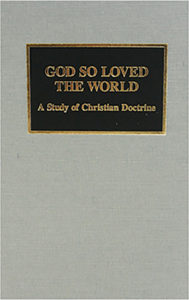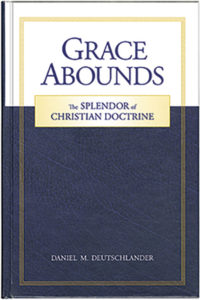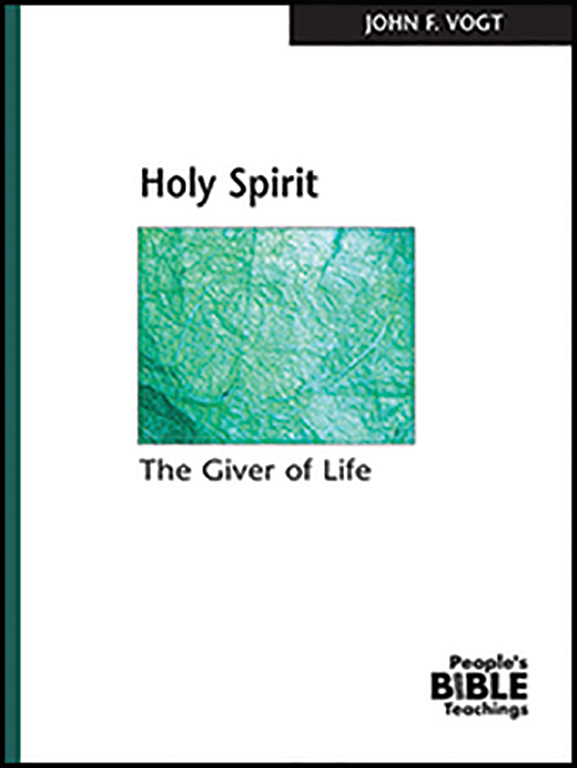 |
By the ordinary means of the Word and sacraments, the Holy Spirit has made us believers and children of God.
If only we had been there. If only we could have heard the sound of rushing wind. If only we could have seen the tongues of fire dancing on their heads with our own eyes. If only we could have heard the sound of all those foreign languages being spoken at once that day. If only we could have experienced Pentecost.
Feeling the Spirit’s presence?
Many Christians long for their own Pentecost experience. They want to feel the excitement of being Christian. But Christendom has such diverse views on the Holy Spirit. Some Christians claim to experience the Spirit directly through ecstatic outbursts. Others ecstatically speak in tongues. Still others think the Spirit is an impersonal force. And while some Christians claim to feel the Spirit’s presence, others think he is distant.
For us Lutherans, all this talk of the Holy Spirit may make us uncomfortable. Who is the Holy Spirit and what does he do? The excitement of charismatics makes us wonder. Perhaps we may be a little intimidated by their enthusiasm. It may be easier for us to leave the Holy Spirit for those on the fringes of Christianity. We may roll our eyes at fellow Christians speaking about the Spirit in such emotional ways. We may even rationalize our dismissal by thinking, In Christ alone my hope is found.
On one hand we do recognize the excesses, while on the other we secretly want a direct experience with him. Who would not want some sort of personal experience with the Divine? A personal experience with the Spirit would be exciting. It would be transformational, because then we would no longer need eyes of faith or God’s promises for that matter. We would have our own experience to stand on. And there is the problem.
Recognizing the Spirit’s work
Each Sunday we confess, “I believe in the Holy Spirit.” We confess him as the third person of the Trinity who is one in essence with the Father and the Son. Rather than being a power emanating from God or an impersonal force, he is personal. Rather than working arbitrarily or in spurts of excitement or ecstasy, he works on us consistently.
Elijah had to learn how the Lord works. He did not come to Elijah in an earthquake or in fire but in a gentle whisper (1 Kings 19:12). He has not promised to burst suddenly from a blinding light. The gospel seems so ordinary, but the Holy Spirit works through it. So, yes, in a very real sense you have had a personal experience with the Holy Spirit. The Spirit is God. He might seem ordinary, even hidden, but he is also powerful and amazing.
The Spirit didn’t confront you directly with a decision to give your life to Christ, but if it weren’t for the Spirit, you would still be trying to find God (2 Thessalonians 2:13,14). You would have had to search for God in nature or find him within yourself. Either way, the god you would have found wouldn’t be the true God. Instead, the Spirit broke through your hostile heart and brought you into the family of God. You are born again (John 3:3).
Because of the Spirit there is real power in the ordinary.
The Spirit hasn’t provided you with some esoteric or secret philosophical knowledge, but if it weren’t for the Spirit you would hold tightly to the wisdom of the world—personality tests, popular self-help books, or tarot—anything that would provide a solution to your perceived problems (1 Corinthians 2:9,10). Instead, the Spirit has given you insight into the mysteries of God (1 Corinthians 2:14-16). In doing so he showed you what your greatest problem is—sin—and revealed to you the one solution to that problem—Christ.
The Spirit hasn’t given you a perfect life in morality and circumstance, but if it weren’t for the Spirit you would have no desire to love God. There would be no faith, no new person, to fight against the sinful flesh. Instead, you would have to mound up unending works to get in good with your lowercase “g” god and earn his love. The Spirit has given you an entirely new way of life and empowers you to produce good works, which flow out of the saving faith that he created in you (Galatians 5:24,25).
Maybe you don’t see yourself as a “Spirit-filled” person who speaks with fire and power and always has just the right words to say. But if it weren’t for the Spirit your simple witness to others could not turn someone from darkness to the light of Christ. The Spirit does the work of convicting hearts (John 16:8) and turning people toward God (1 Corinthians 6:11). And the Holy Spirit works through you and the gospel message to do it (Romans 1:16; 1 Corinthians 12:3).
The work of the Spirit is quite personal and powerful. Without the Spirit, pews and pulpits would be empty. Without the Spirit, I would not hear the two-year-old in my congregation trying to recite the creed. Without the Spirit, loved ones wouldn’t have Christian comfort on their death beds. Without the Spirit, I wouldn’t be writing this article.
Trusting the Spirit’s power
Do you still long to see the excitement on Pentecost day and hear Peter’s powerful sermon? You might not feel so inspired after every worship service, every Bible class, or every sermon. But the gospel “is the power of God that brings salvation to everyone who believes” (Romans 1:16). In your ordinary pastor and his ordinary sermons, the Spirit is at work convicting you, encouraging you, and comforting you.
Do you long to have been there that Pentecost day to see what the disciples did to get three thousand people to come to faith? Maybe that’s why we think that if we have just the right type of music or the perfect small group to meet the specific needs of our communities our churches will grow. In contrast, the Spirit works in ordinary ways to call people to faith and strengthen them in their faith. Through ordinary tap water poured on a child’s head, he writes that child’s name into the book of life (Titus 3:5). Through ordinary ink printed on paper from a tree, he gives the teen the courage and strength to face another day (Romans 5:3-5). Through ordinary bread, ordinary wine, and the spoken word, the Spirit seals forgiveness for us and strengthens us in the one true faith until life everlasting.
The Spirit works in rather ordinary ways, but his ordinariness is not a problem. He teaches us to put our faith in the promises of God, not in our experiences or emotions. Because of the Spirit there is real power in the ordinary. Through Word, water, bread, and wine, the Spirit comes into contact with us and changes us at our core. Through Word, water, bread, and wine, the Spirit is the heartbeat of our spiritual lives and our relationship with our Savior.
For further study
“Neither you nor I could ever know anything of Christ, or believe on him, and have him for our Lord, unless it were offered to us and granted to our hearts by the Holy Spirit through the preaching of the gospel. . . .” (Large Catechism, II, par. 38).

God So Loved the World:
A Study of Christian Doctrine,
L. Lange, pp. 122-124

Grace Abounds: The Splendor
of Christian Doctrine,
D. Deutschlander, pp. 48-52
Holy Spirit:
The Giver of Life,
J. Vogt
These books are available from Northwestern Publishing House, 800-662-6022.
Author: Aaron Goetzinger
Volume 107, Number 05
Issue: May 2020








